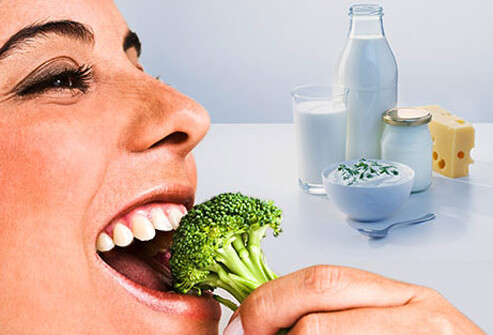
Essential Body Nutrients
We need to constantly take in nutrients to build up our body structures, provide energy for our biological and physical activities, as well as to serve as essential elements for biological activities.
The nutrients that we need to maintain our health belong to the following groups: Proteins, Carbohydrate, Fats, Vitamins, Minerals, and Water.
1. PROTEINS:
Protein is a large molecule composed of one or more polypeptides chains, each of which is in turn composed of amino acids. There are an estimated 100,000 different proteins in the human body, and each of them is made up of a different combination of only 20 amino acids.
The sequences and the total number of the amino acids, as well as the number of each particular amino acid on the polypeptides chains are encoded in DNA. When mutations occur on DNA molecules, defective proteins or proteins with new functions might be produced, leading to diseases/dysfunction or even new varieties of the species.
Main Food Sources of Proteins:
The main food items which are rich in proteins are meats, eggs, cheese, milk, beans, grains, and some other plants seeds, like peanut, walnut, chestnut, etc.
Amino Acids:
Amino acids are the basic unit of proteins. Human proteins consist of up to 20 amino acids, 8 of which are essential amino acids because our human body can not synthesise them and they must be taken in from food. The rest amino acids are non-essential amino acids, since they can be synthesised by our body.
Essential Amino Acids: isoleucine, leucine, lysine, methionine, phenylalanine, threonine, tryptophan and valine. Essential only in children: arginine and histidine
Non-Essential Amino Acids: alanine, arginine, asparagine, aspartic acid, cysteine, glutamic acid, glutamine, glycine, histidine, proline, serine and tyrosine.
Polypeptides:
Two or more amino acids are combined together to form a peptide chain. A peptide with fewer than about ten amino acids is called oligopeptide and a peptide with more than ten amino acids is called polypeptide.
2. CARBOHYDRATES:
Carbohydrates are carbon, hydrogen and oxygen containing molecules of plant origin, such as sugars, starch and fibres (cellulose, lignin, pectin and mucilage). Carbohydrates are very important to us because sugars and starch provide the energy to maintain our metabolism, as well as the carbon source for us; whereas dietary fibre also plays an important role in health.
3. FATS AND OILS:
Dietary fats and oils are triglycerides that are formed from one glycerol and three fatty acids. Fats are generally in solid state at room temperature, whereas oils are generally in liquid state at room temperature.
Fats and oils are essential to our health as an important source of energy and fatty acids, as well as providing some other important functions.
4. VITAMINS
Vitamins are a group of organic molecules that are essential in small amount for our normal metabolism; they need to be taken from food since our bodies either doesn’t produce them, or at least not in sufficient amount. Vitamins serve either as co-enzymes, or form an integral part of coenzymes.
Based on solubility, vitamins are generally grouped into two major groups:
i. water-soluble and
ii. fat-soluble.
i.Water-Soluble Vitamins
Vitamin C and the B complex are water soluble vitamins.
Excess water-soluble vitamins are not stored in the body, they are excreted in urine instead
ii. Fat-Soluble Vitamins
Vitamin A, D, E, and K are fat soluble vitamins.
Excess fat-soluble vitamins are stored in the fat tissues and liver, thus toxicity may occur if overdosed with fat-soluble vitamins
Vegetarians should pay particular attention to Vitamin B12 since they lack vitamin B12 rich food such as diary products and eggs from their diets.
Pregnant women should take vitamin supplements to ensure to get enough folic acid, vitamins C and E, as well as mineral calcium. 75% of certain birth defects can be prevented if women take proper supplements both before and during pregnancy.
5. WATER:
Life originated from water. Water makes about 50% to 70% of body weight in human. A minimum of about two litres.””” of liquid per day is recommended for the average adult for optimal health.
6. OXYGEN:
Anyone who holds up breath for a minute or two will realise the importance of oxygen – That’s why it is also included as an important nutrient.
The body needs carbohydrates as the carbon source; need water as the medium where metabolism takes place; and likewise, body rely on oxygen as the ultimate source of oxidative power to unlock the energy that is stored in carbohydrates.
Why oxygen is not ranked by the science world as one of the categories of nutrition, along with proteins, carbohydrates, fats, vitamins, minerals and water, is hard to understand. Maybe because of the fact that oxygen is freely available so it’s been taken for granted.










